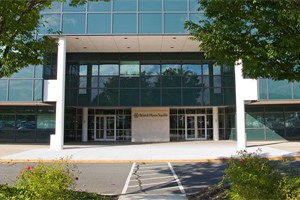 The UK’s National Institute for Health and Care Excellence has again not recommended Bristol-Myers Squibb’s lung cancer immunotherapy Opdivo for use on the NHS.
The UK’s National Institute for Health and Care Excellence has again not recommended Bristol-Myers Squibb’s lung cancer immunotherapy Opdivo for use on the NHS.
But the cost-effectiveness body has offered the company the opportunity for a limited trial through the newly-reformed Cancer Drugs Fund.
Concluding a year-long discussion with BMS and NHS England, NICE said in draft guidance that Opdivo (nivolumab) is not cost-effective for all patients with squamous and non-squamous advanced non-small cell lung cancer (NSCLC).
The watchdog has, however, acknowledged a particular benefit in NSCLC patients with PD-L1 status and has requested that BMS prepare its case for the inclusion of Opdivo in the CDF to gather more information on its cost-effectiveness in this patient population.
Commenting on the decision, Benjamin Hickey, general manager of BMS UK & Ireland, said that the firm is “extremely disappointed for the majority of lung cancer patients for whom this NICE guidance could deny a potential life-line”.
He added: “We strongly disagree with the notion that nivolumab treatment should be restricted to around one third of patients because this is inconsistent with the clinical evidence.”
A PD-1 inhibitor, Opdivo targets PD-L1 proteins on the surface of cells, which are responsible for reducing the effectiveness of immune cells. Cancerous lung cells have more PD-L1 than normal cells, preventing the body from attacking the tumour.
Data from the CheckMate-057 clinical trials showed that Opdivo extended the survival period for NSCLC patients with PD-L1 status by seven months more than those with less PD-L1, but overall, 39% of Opdivo-treated patients were still alive after 18 months compared with just 23% of patients treated with the standard Taxoterre (doxetaxel) chemotherapy.
However, at a minimum of £73,500 per quality-adjusted life year (QALY) for squamous NSCLC and over £150,000 per QALY for non-squamous NSCLC, the cost of the drug far exceeds the usual incremental cost-effectiveness ratio (ICER) sought by NICE.
Hickey added: “We continue to be open to finding a solution for all advanced lung cancer patients who could potentially benefit from nivolumab.”




